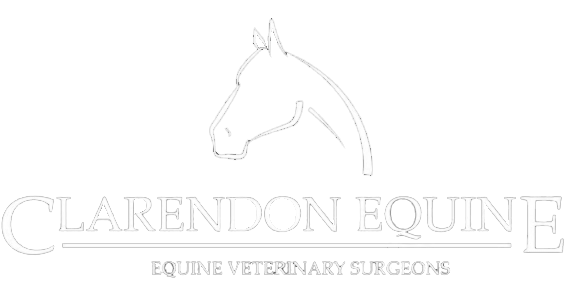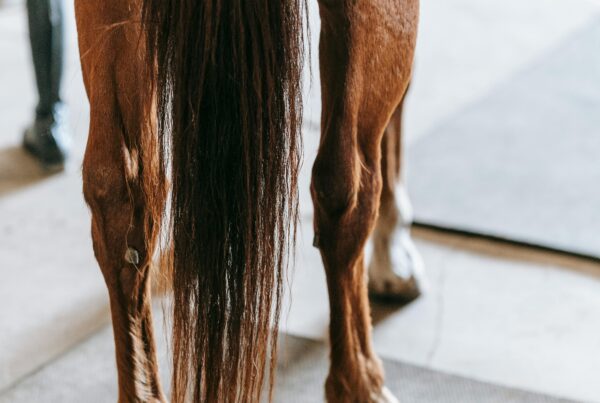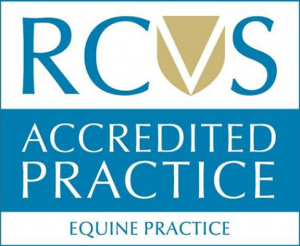All horse owners need to know the vitamin requirements for their equine companions.
Horses require essential vitamins and minerals for their health, growth, and development – yet many of us don’t know which ones they need or how much to give them.
We’ll explore the importance of Vitamin A, B Complex, C, D, and trace minerals in this blog post so you can ensure your horse is getting the nutrition it needs.
So let’s dive in: What do our equine friends need to stay healthy, and which vitamins are essential and why?
Vitamin A
Vitamin A is essential for the health of a horse. It helps to keep their eyesight sharp, skin healthy and coat shiny. Without it, horses can suffer from vision problems and poor coat condition. Vitamin A assists in the uptake of other vitamins and minerals, ensuring your horse gets all the necessary nutrients for optimal health.
- Carrots are an excellent source of vitamin A for horses. Not only do they provide a tasty treat, but one carrot contains more than double the recommended daily amount of vitamin A for an average-sized horse.
- Sweet potatoes can be an excellent choice for providing Vitamin A, as they offer up to four times the amount compared to carrots.
- Kale and spinach are excellent sources of vitamin A, providing an alternative to carrots or sweet potatoes.
- Alfalfa hay is rich in vitamins and minerals, including plenty of vitamin A – perfect for supplementing your horse’s diet without buying many different foods.
It’s important not to give your horse too much vitamin A, though, like most things in life, moderation is essential for nutrition. Excess consumption of Vitamin A can result in toxicity, so you should always consult your vet before introducing any supplements into the horse’s diet.
“Vitamins are essential for horses. Carrots, sweet potatoes, green leafy vegetables & alfalfa hay provide vitamin A. Too much can be toxic – consult your vet before introducing supplements.” #horsehealth #veterinarycareClick to Tweet
Vitamin B Complex
Vitamin B Complex is essential for a horse’s health and well-being. Vitamin B Complex transforms food into energy, sustaining healthy skin, coat, vision, hooves, and bones. A deficiency in these vitamins can lead to poor performance or even death.
- Oats are high in thiamine (B1), riboflavin (B2) and niacin (B3), an excellent source of Vitamin B complex for horses. These vitamins aid digestion by breaking down carbohydrates, fats, and proteins into usable energy. They also help in muscle growth which can be beneficial during training sessions or competitions such as show jumping or eventing.
- Barley is an excellent provider of Vitamin B complex, offering a high concentration of pantothenic acid (B5) to facilitate energy conversion and ensure the well-being of nerve cells. Folic acid (B9), found in wheat bran, helps form red blood cells and supports DNA replication within cells; this is especially beneficial for foals as they need a wealth of nutrients during their rapid growth.
- Molasses can be a great source of vitamins B6, B7 and B12. These vitamins help maintain hormonal balance, aid in healthy hoof growth, and support the nervous system for optimal performance.
In summary, providing your horse with adequate amounts of vitamin B complex from natural sources such as oats, barley wheat bran, and molasses will ensure that he has all the necessary building blocks for optimum health and performance.
Important Takeaway: Horses need their daily dose of Vitamin B Complex to stay healthy and perform at their peak. A deficiency can be detrimental, so give your horse the building blocks they need by providing them with natural sources such as oats, barley wheat bran and molasses. Maintaining your horse’s well-being is essential for optimal performance.
Vitamin C
Vitamin C is essential for horses, and its antioxidant properties make it especially important. Vitamin C’s antioxidative effects can be beneficial in shielding cells from the harm that comes with free radical presence, which may cause inflammation and other illnesses. Horses produce their own vitamin C but may need additional supplementation if they are stressed or have a poor diet.
- Fruits like oranges, lemons, and grapefruits can provide Vitamin C to your horse’s diet through treats or daily feed rations, while other sources such as strawberries, bell peppers, broccoli and kale can be blended into a nutritious’ horse smoothie’. Strawberries, bell peppers, broccoli and even dark leafy greens like kale also contain high amounts of Vitamin C.
- Supplements are another option if your horse isn’t getting enough Vitamin C from his regular diet. Many different forms are available such as powders or tablets that can be added directly to the feed ration or given orally via syringe, depending on what suits your horse best. Always consult with your vet before giving any supplements. They can advise you on the correct dosage for each animal based on age, size, and activity level, so it’s always best to check first.
In summary, although horses do produce some of their Vitamin C naturally, there may still be times when additional supplementation is necessary due to stress levels or dietary deficiencies. Ensuring that adequate amounts are present in the food (through fresh fruit/veg), or supplementation (powders/tablets) should help keep them healthy and happy.
Important Takeaway: It’s critical for your horse to be provided with the necessary amount of Vitamin C, either from fresh produce or dietary supplements. It’s wise to consult your vet before giving Vitamin C to your horse to ensure they remain in good health.
Vitamin D
Vitamin D is an essential vitamin for horses, and it helps the body absorb calcium and phosphorus, both of which are necessary for strong bones and teeth in equines. Vitamin D can be found naturally through exposure to sunlight or supplemented through fortified feed products such as hay cubes or pellets.
Due to its superior absorption rate, the supplement Cholecalciferol, or Vitamin D3, is the most popular form of vitamin D. This vitamin is proven to provide excellent absorption making it ideal for horse owners to add additional vitamins and minerals.
Horse owners must pay close attention to their animals’ diets when considering adding a supplement like Vitamin D3 into their regimen. Too much supplementation could cause health issues such as bone pain or organ failure – not something any responsible owner wants. On the flip side, too little could lead to deficiencies in calcium levels leading to weakened bones and teeth.
The amount of vitamin D given daily will vary based on the horse’s age, breed, size, and health status. Therefore, always check with your vet before beginning any supplementation plan for your four-legged friend.
Vitamin D is essential for horses. Too much can be dangerous, so consult your vet before supplementing with Vitamin D3. #horsehealth #vetservicesClick to Tweet
Trace Minerals
Trace minerals are essential for the health and well-being of horses, and they play a role in hoof growth, fertility in mares, and overall body functioning. These trace elements include zinc, copper, iron, selenium, and iodine.
- Zinc is essential for healthy skin and coat condition and aids wound healing and proper digestion. Copper helps form strong bones and teeth while assisting in iron absorption from food sources.
- Iron is vital for red blood cell production, which carries oxygen throughout the body and plays a crucial role in muscle development.
- Selenium helps protect cells from damage caused by oxidation or free radicals; it’s also necessary for proper thyroid function, which controls the metabolism rate. Lastly
- Iodine assists with normal brain development and controlling energy levels within the horse’s body.
Horses can get their daily requirement of trace minerals through salt licks or blocks designed to meet their needs or mineral supplements added to feed products. Additionally, consulting your vet on what type of supplement would best suit your horse’s needs will ensure they receive adequate amounts of these essential vitamins daily without any issues.
“Horses need trace minerals like zinc, copper, iron, selenium and iodine for optimal health. Get them from salt licks or mineral supplements to keep your horse healthy.” #horsehealth #vetcareClick to Tweet
Conclusion
Achieving a nutritious diet plus the correct dietary supplements can guarantee your horse obtains all of its required vitamins. From Vitamin A to trace minerals.
Understanding what vitamins are necessary for horses will help keep them healthy and happy. Ensuring your horse receives the proper nutrition, including essential vitamins in adequate amounts, should be a priority for optimal health.
Speak to Clarendon Equine today about supplements for your horse and find out what services we can offer you.









